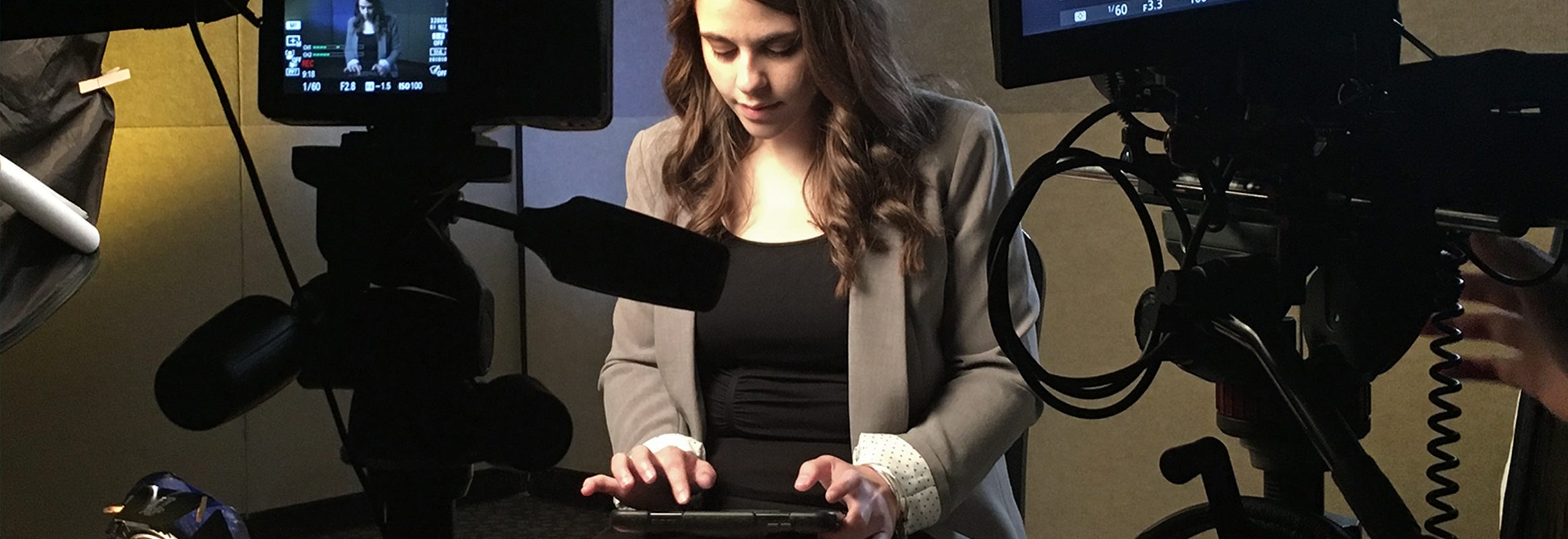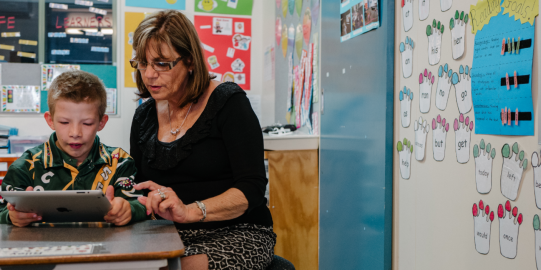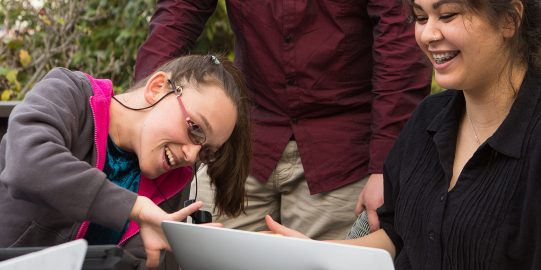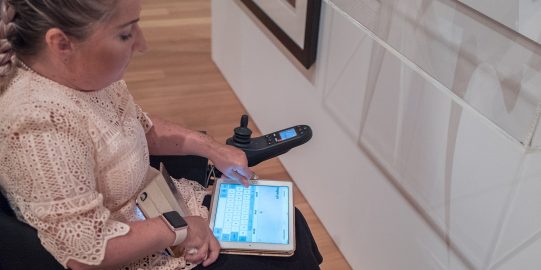A few days into sixth grade, my world fell apart. I didn't have enough expressive speech skills to communicate my emotions and professionals didn't realize my ability to understand language. I frequently became frustrated; screaming, hitting my head and running out of the classroom.
Middle school and high school were mostly filled with specialized schools and home therapy routines; programs which offered no academic or social challenge.
At 17 years old, I returned to my local high school. I participated in basic activities such as putting teacher's name cards in alphabetical order, washing windows at the bus garage and going to Old Navy to hang clothes on hangers. I think it was the severity of my behaviors that led teachers to treat me like I couldn’t understand anything more than basic English. People looked at data and made assumptions that were wrong, but hard to debunk. Teachers would make promises about things they were going to do that usually went unfulfilled. At 18 years old I was being told to touch my nose and touch my head, then subsequently given candy for complying.
Finding My Voice
Just shy of my 19th birthday, I began communicating through an iPad.
I had been home for a couple weeks and my mom was working on getting me back in school. While I had been able to communicate using verbal language, I have always been limited to some extent. My brain moves much faster than my mouth and I have to fight my body to speak the words that I am thinking. I needed a way to share what was bothering me in school -- why I was so resistant to their instruction. Administrators were under the impression that I despised school and that it was too demanding, but really I craved higher level teaching; I wanted to be taught curriculum that challenged my thinking, and I wanted to be included with the general school community. I had so many stories of horror that were stuck inside of me.
A Perfect Fit
Once I was able to show what I knew by using my iPad to communicate, things at school slowly started to change. I was no longer completely isolated. When people realized how intelligent I was, I was given the opportunity to participate in general education classes with my peers. I started attending a new school where I was respected, instead of constantly rejected. As time went on, I became a welcomed member of the new high school -- joining their inclusion cheerleading team, helping to manage activities, and even joining the speech and debate team. When other students spoke their speeches; I spoke mine using my iPad. I was included and I belonged.
After strongly communicating my goals for the future, I was also able to gain hands-on work experience in a field that I was passionate about. Having my iPad helped me begin to express myself in situations where I would become frustrated and run out of the classroom or the building. In addition to my academic achievements, I also had the opportunity to speak to the broader community, on topics such as autism and my experience in the educational system.
Post-Secondary Education
In May, 2016, I graduated from high school, after over 17 years in the public school system. I am now a college student studying special education, although, due to my immense determination, this is just the beginning of what I hope to do.
Now that I can communicate effectively, I have much more control over myself and my own emotions. My iPad (and iPhone) has become part of my daily life. I am able to use these technologies to build strong connections and participate in activities with people who may not have otherwise understood my ability to comprehend complex language or have advanced thoughts. Although people often prejudge my intellectual ability based on the way I communicate, college has been a fairly good experience. I live in a dorm with a roommate and navigate campus with minimal support.
That’s the power of technology and communication, combined.
My story inspired the documentary "This is Not About Me". Watch the film here.




